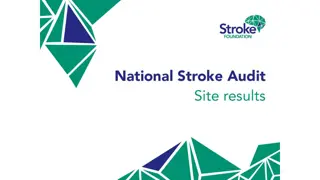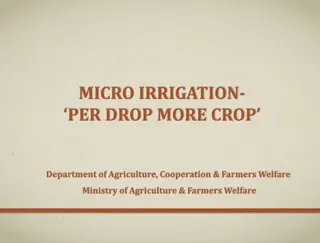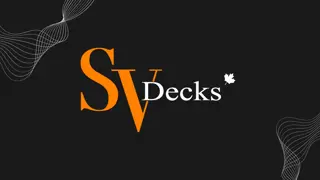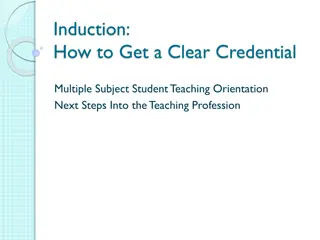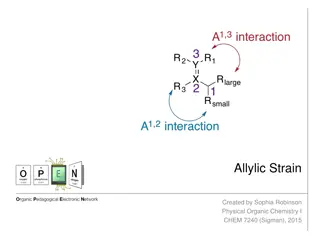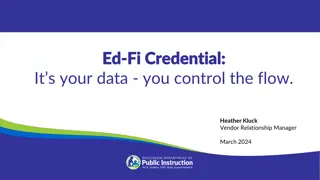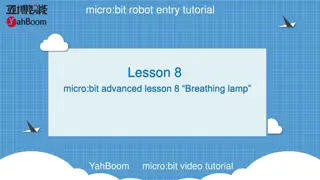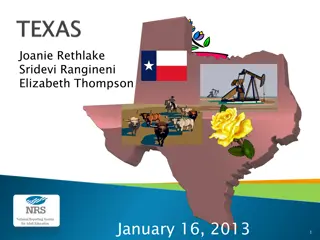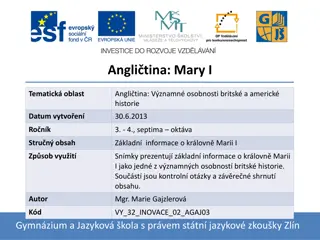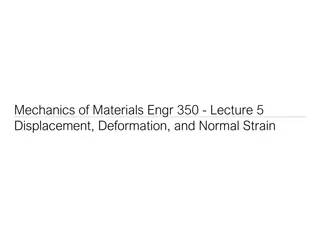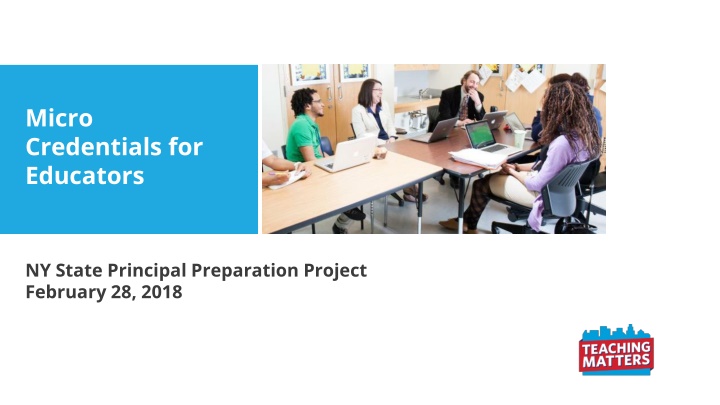
Empowering Educators with Micro Credentials in Education Ecosystems
Explore the impact of micro credentials for educators in various states, including New York, as a pathway for professional development and career advancement. Learn how traditional professional learning models are evolving to meet the unique needs of educators and schools, promoting competency-based assessments and continuous improvement.
Download Presentation

Please find below an Image/Link to download the presentation.
The content on the website is provided AS IS for your information and personal use only. It may not be sold, licensed, or shared on other websites without obtaining consent from the author. If you encounter any issues during the download, it is possible that the publisher has removed the file from their server.
You are allowed to download the files provided on this website for personal or commercial use, subject to the condition that they are used lawfully. All files are the property of their respective owners.
The content on the website is provided AS IS for your information and personal use only. It may not be sold, licensed, or shared on other websites without obtaining consent from the author.
E N D
Presentation Transcript
Micro Credentials for Educators NY State Principal Preparation Project February 28, 2018
Defining Micro Credentials Competency Based Micro Credential is digital badge that recognizes demonstration of a competency based on evidence assessed and validated by issuing organization Digital Badge is issued by an organization, embedded with metadata including the achievement assessed and evidence of achievement - Open Badge 2.0 Compliant Key Terms: Stack Issuer Earner Recognizer Issuer Reviewer/Assessor
Growing Ecosystem At least 17 States including NY State have included educator micro credentials in their ESSA plans Early Adopter: Arkansas: State legislature has adopted select micro credentials as approved pathway for teacher career advancement (Tiers 1- 4) Leadership Quest project includes select micro credentials for principal professional learning aligned to career pathways for school leaders Early Adopter: Tennessee: State legislature approved select micro credentials for Continue Education Units 2017-18 Pilot of a select stack of micro credentials to qualify for career pathway roles for teachers American Institutes for Research: Micro credentials for Teachers Lessons from Three Early Adopter States
Growing Ecosystem Early Adopter K-12 Systems Baltimore Co, MD District offered select micro credentials for teacher professional development - in lieu of attending in person PD NYC DOE - Office of Teacher Recruitment and Quality more than 500 educators and 1,500 micro credentials issued Micro Credentials provided a solution for equitable transparent pathway into new teacher leader roles Grown across the system as a strategy to elevate teachers with high value expertise
Traditional professional learning models have too often failed to engage educators in context based practice and have often lacked evidence of impact. 1 Teaching Matters recognized a professional learning Challenge Traditional models for assessing success have relied on methods and sources that are not sufficiently aligned to the specific practices they seek to measure and are not designed to support continuous improvement 2 Schools and school systems are unique ecosystems - with unique assets, challenges and contexts. Preparation and professional learning must reflect these needs and respond with supports that address systemic values 3
1 Competency based micro credentials can be designed to support demonstration of context based learning and impact - throughout the course of educators careers. Micro Credentials Offered A Possible Solution 2 Competency based micro credentials offer an opportunity to craft assessments and an assessment for learning process specifically aligned to high value competencies 3 Micro credentials offer transparent, flexible learning pathways that can be aligned to school system values and career pathways
Evolution of Micro Credentials: Teaching Matters 2016 Mineola Union Free School District - 18 Micro Credentials with over 30 Teachers Leaders (2016-present) NYC DOE Stack of micro credentials for Emerging Teacher Leaders (Over 500 teachers 2017-present) 2017 Tennessee State DOE Partnership supporting (85 teacher leaders across 6 districts) Bill and Melinda Gates Foundation Grant - Master Teacher Program (60 Teacher Leaders) NYC DOE Expanded Emerging Teacher Leader Program expanded to content specialization: Culturally Responsive Educators and AP for All (over 100 teachers) 2018 NYC Council of Supervisors and Administrators: Strategic School Leader Fellowship Program: Culturally Responsive School Leadership and Leading Formative Assessment Practices (25 school leaders) Arkansas State DOE Partnership for Tier 3 Licensure - (50 Teacher Leaders across 3 districts) Spring, 2018
The micro credentialing process was a way to document my achievements, make it clear to my colleagues, administrators and coaches in the school what I was doing. They helped me improve the culture at the school and helped others understand and accept the role of teacher leader. Accolades Vicky Dedaj, teacher leader, X468 Bronx, NY - Once the teachers earned the micro credentials then you really saw the shifts. They felt they earned the right to lead PLC s in ways that moved the whole team toward improved student outcomes. Pat Burns Asst. Sup. Mineola Union Free SD - This type of professional development is powerful in that it isn't just about going to a session, listening and going home. It is fundamentally built on a process that requires learners to implement practices, reflect on the work and demonstrate mastery. Ann Williams, Director of Teacher Recruitment and Quality NYC DOE -
Currency matters- incentives such as career advancement, financial incentives, credit or accreditation increase participation and completion rates What Have We Learned? Educators find the process and agency associated with micro credentials appealing and valuable - establishes a mindset of earning vs receiving
Systems find micro credentials to provide more data, support transparency, are more flexible and locally aligned to systemic needs, as well as have strong potential for more strategic recruitment and allocation of talent What Have We Learned? Stacks and progressions allow for deeper learning Approaching assessment as an opportunity For learning rather than just of learning is powerful for moving toward mastery
Recommendations for Improved Micro Credentialing Ecosystem Establish Competency Based Micro Credentials as a standard Establish a framework to align micro credentialing systems to standards and learning objectives - what learning is most appropriate for micro credentialing Pre service - opportunities for authentic practice based demonstrations Post graduation and throughout career - continuing professional learning, certification processes, endorsements and principal evaluations Create guidance/standards for assessment of micro credentials and learning pathways through micro credentials
Recommendations for Improved Micro Credentialing Ecosystem Redefine CTLE process to include competency based micro credentials -shift from seat time requirements to outcomes based evidence Establish an approval process for micro credentials and issuers - at the local or state level Consider term limits for review of micro credentials, Focus on stacks of learning Utilize the endorsement features of digital badges as strategy for approval or quality measure Embrace the opportunity for distributed learning to support continuous innovation and to leverage expertise
Considerations for Principal Preparation Project How can NY State establish guidelines for rigor and quality while maintaining central benefits of micro credentialing for professional learning? How can Higher Ed and NY State support currency for demonstration of critical competencies through micro credentials? How can micro credentials enhance pre-service learning? How might micro credentials strengthen principal evaluation? How might micro credentials provide more meaningful pathways to certification, endorsements and specialization credentials - particularly in meeting local needs?
Contact Mary Strain, Teaching Matters mstrain@teachingmatters.org www.teachingmatters.org @teachingmatters




